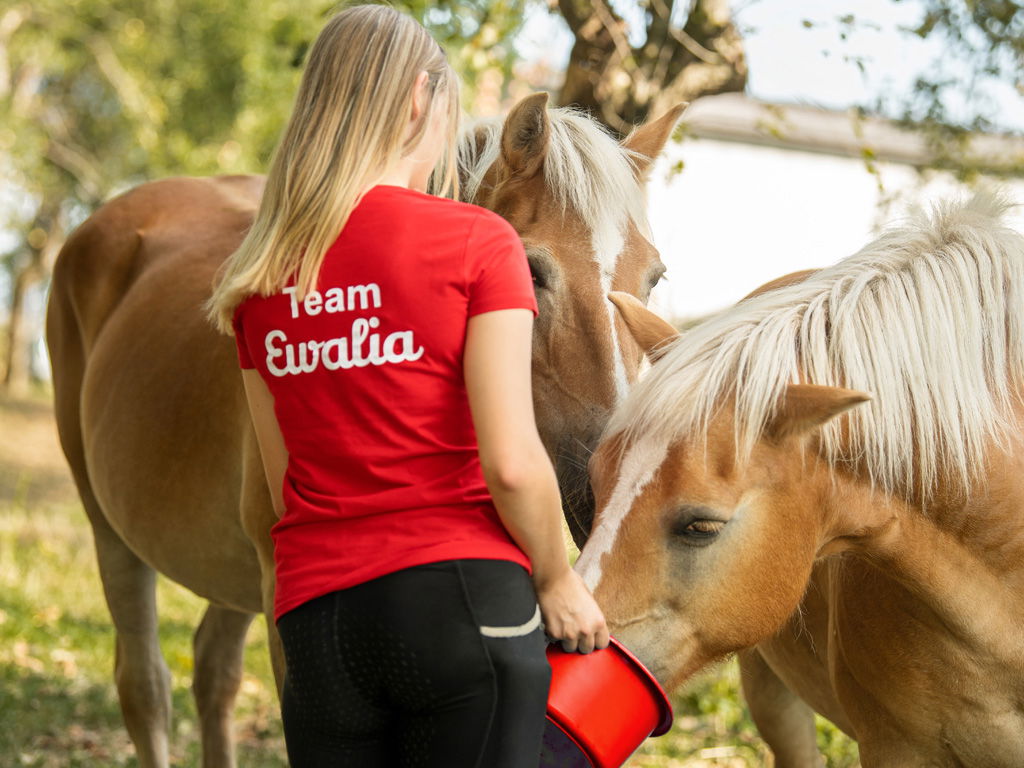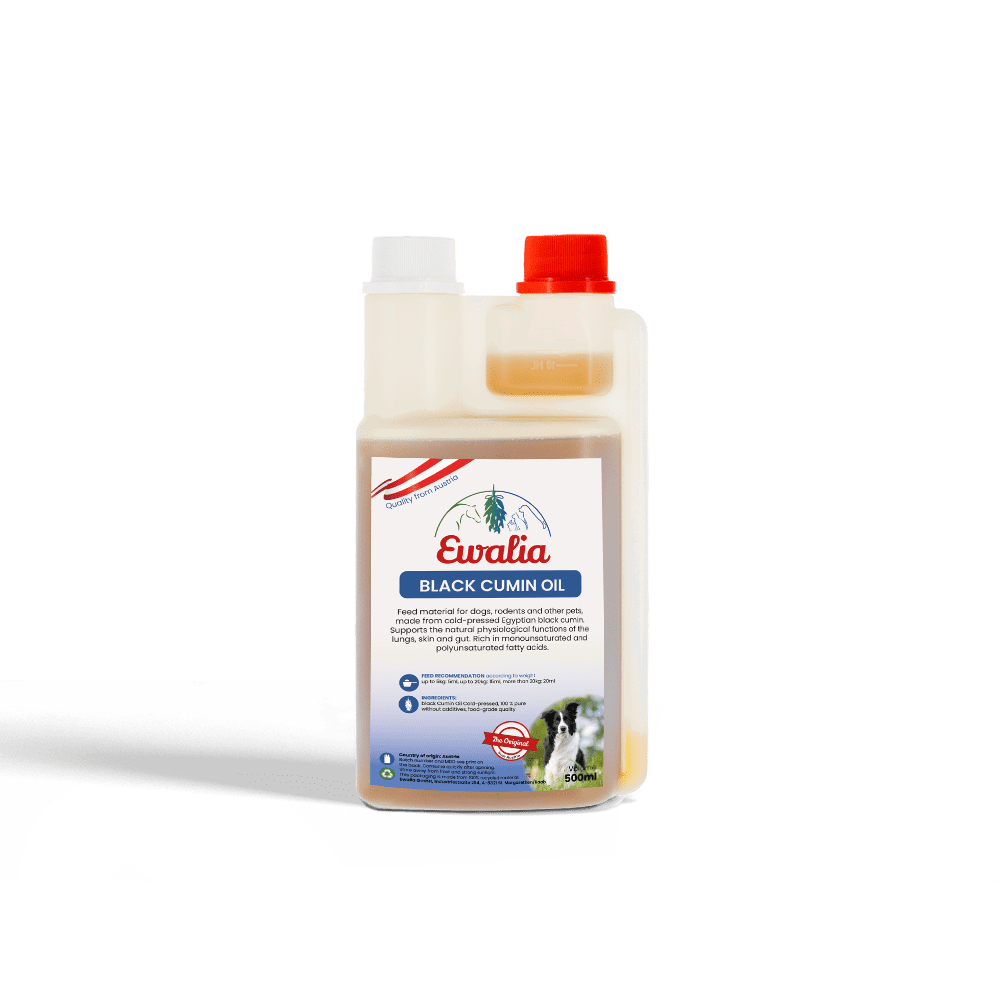Black Cumin Oil

The saying "Black Cumin Oil cures every illness, except death" comes to us from Islam. Glancing through recent studies, the quote actually appears like a kind of prophecy, because Black Cumin Oil has been scientifically proven to have positive effects on the immune system, the lungs, the liver and the gastrointestinal tract. Black Cumin Oil is used not only in horses with sweet itch, but also for coughing, indigestion and liver problems. Black Cumin Oil for horses: How it works, when you can use it and what must be kept in mind when feeding it.
What is Black Cumin Oil?
The Latin name of the plant is Nigella sativa and it is native to as well as cultivated in western Asia to India and Egypt. The herbaceous plant is up to 30 cm tall, has alternate, tripartite pinnate leaves and is slightly hairy. The tips of the white petals, delicately greenish or bluish on the edge, are quite striking. The seeds develop directly from the flowers and are black, triangular and wrinkly. Only the seeds are used for pharmaceutical purposes and made into oil or tea.
What is the active ingredient in Black Cumin Oil?
Roughly summarised, Black Cumin Oil contains essential oil, fatty oil, saponin, tannins, bitter substances as well as Vitamin K1 and amino acids. The drug groups nigellone and thymoquinone are interesting from a medicinal point of view, especially in cold-pressed Black Cumin Oil. Both can be found in a large number of human medicine and veterinary studies, such as in cancer research. Antimicrobial (against bacteria and fungi), antiparasitic, antidiabetic (reducing insulin levels), antioxidant (radical scavengers), anti-inflammatory, low analgesic (analgesic), antitumoral (inhibits the growth of tumour cells) and immunomodulatory effects (reduces the risk of immune hypersensitivity reaction) have been proven definitively.
What is Black Cumin Oil used for?
In veterinary medicine Black Cumin Oil is predominantly used for:
- immune system disorders (eczema, autoimmune diseases, allergies, equine sarcoid)
- diseases of the respiratory system (coughing, coughing caused by allergy or asthma, bronchitis)
- live and kidney problems
- diabetes
- inflammatory processes in the horse's body (anti-inflammatory and mildy analgesic)
- lack of appetite
- indigestion problems such as diarrhoea and flatulence
It is clear that Black Cumin Oil has a comprehensive range of effects which has not been fully researched by a long shot. One can even use Black Cumin Oil externally for smaller wounds and bruises.
What must be kept in mind when feeding it?
Black Cumin Oil should be produced in a gentle, cold-pressed process that does not exceed the temperature of 60 degrees Celsius, so as not to destroy the valuable ingredients and their biochemical composition. The health-promoting effects of Black Cumin Oil can only developed in a high-quality manufacturing process. Some horses react with diarrhoea to a sudden feeding of fatty oils, so it is advisable to start with a very small quantity and to slowly increase it until reaching the full daily dose. From a nutritional and physiological point of view, it is recommended to use different oils alternately as a dietary supplement in treatments.
Compiled by: Bianca Becker-Slovacek on 10/10/2018
Bibliography and further reading
- Ahmadi, M., Scurtu, M., Tulcan, C., Boldura, O.-M., Milovanov, C., Hutu, I., . . . Dronca, D. (2016). Nigella Sativa - a Plant with Personality in Biochemistry and Experimental Medicine Researches. Bulletin UASVM Veterinary Medicine 73[2], 203 - 209.
- Blaschek, W. (2016). Wichtl - Teedrogen und Phytopharmaka. [Gnome-tea drugs and phytopharmaceuticals] Stuttgart: Scientific publishing company.
- Krist, S., Buchbauer, G., & Klausberger, C. (2008). Lexikon of plant fats and oils. Vienna: Springer Publishers.
- Marschik, T. (2014). Literature study on the antiviral effect of medicinal plants and their use in veterinary medicine. Vienna: Diplom thesis at the Veterinary University of Vienna.
- Pahlow, M. (2013): The big book of medicinal plants. Hamburg: Nikol Publishers.
- Shafiq, H., Ahmad, A., Masud, T., & Kaleem, M. (10 October 2014). Cardio-protective and anti-cancer therapeutic potential of Nigella sativa. Iranian Journal of Basic Medical Sciences, S. 967-979.
- Wohlgenannt, I. (2016). Use and importance of herbal remedies in the respiratory tract of horses in German-speaking Central Europe through the ages. Vienna: Diplom thesis at the Veterinary University of Vienna.















